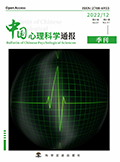

在校研究生培养质量评价目的在于改善研究生人才培养模式, 构建合理的课程体系, 加强研究生的实践创新能力, 提升研究生管理的国际化水平。学者们围绕在校研究生培养质量评价体系与影响因素展开了广泛探讨。多数研究采用多维度综合评价体系, 从培养过程和结果等方面进行考量, 旨在全面反映研究生教育质量。在专业研究领域里, 现有研究多聚焦于理工科专业, 对文科特别是管理类专业的研究相对不足, 忽略了学科间的差异性。在研究思路上往往将培养投入、过程与结果割裂, 未能充分揭示其内在因果关系。在研究内容与方法上, 理论总结与频数分析较为常见, 但缺乏对培养质量内部差异的深入探讨及影响因素的具体细分。未来研究应针对不同学科特点, 构建更具针对性的评价体系, 并强化因果分析, 以更精准地指导研究生教育质量的提升。
The aim of evaluating the quality of on-campus postgraduate cultivation lies in improving the postgraduate talent cultivation model, establishing a rational curriculum system, strengthening the practical and innovative capabilities of postgraduates, and enhancing the internationalization level of postgraduate management. Scholars have extensively explored the evaluation system and influencing factors of on-campus postgraduate cultivation quality. The majority of studies adopt a multi-dimensional comprehensive evaluation system, taking into account aspects such as the cultivation process and results, with the objective of comprehensively reflecting the quality of postgraduate education. In the domain of professional research, current studies predominantly focus on science and engineering specialties, while research on the humanities, particularly management disciplines, is relatively inadequate, neglecting the differences among disciplines. In terms of research approaches, the cultivation input, process, and results are often dissevered, failing to fully disclose their intrinsic causal relationships. Regarding research content and methods, theoretical summaries and frequency analyses are relatively common, but there is a deficiency in in-depth exploration of the internal differences in cultivation quality and specific subdivisions of the influencing factors. Future research should construct more targeted evaluation systems in accordance with the characteristics of different disciplines and intensify causal analyses to guide the improvement of postgraduate education quality more precisely.